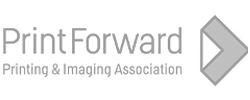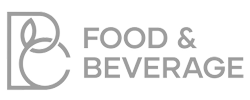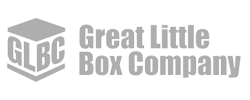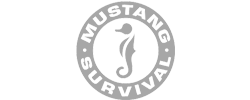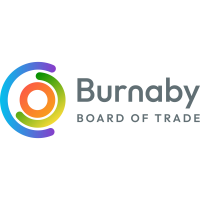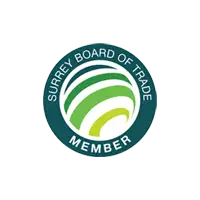OVERVIEW
Students enrolled in Northwest Skills Institute (“Northwest Skills, “NWSI”, “NW Skills”, “we”, “our” or “us”) programs will be assessed to determine satisfactory completion of learning objectives, especially if certification or credentialing is involved.
NW Skills embraces inclusive education, and our principles and practices are anchored in a presumption of competence and high expectations, along with a shared accountability for students’ well-being and achievement.
GENERAL
- The purpose of this policy is to provide a framework for student assessment that supports consistent assessment and evaluation practices across NW Skills programs.
- This policy applies to all Instructors who assess and evaluate student learning and performance and includes all NW Skills courses and accreditation programs. It also applies to students and the expectations placed upon them.
- Assessment focuses on a student’s capacity to develop and apply their knowledge and skills in meaningful, practice-oriented tasks.
- NW Skills will adhere to the Principles for Fair Student Assessment Practices for Education in Canada.
DEFINITIONS
- In this policy:
- “student” means a person who is currently or was previously enrolled in a course, or an accreditation service or examination offered by NW Skills;
- “instructor” means a teacher, facilitator, aide, speaker, examiner, or other staff member of NW Skills guided learning sessions, exercises and activities;
- “assessment” means the ongoing process of gathering evidence to evaluate a student’s progress in meeting and satisfying learning outcomes; and
- “evaluation” means determining the quality of work based upon defined criteria (e.g. a scoring rubric, grading scheme, demonstration of practical skills) through an ongoing process of testing knowledge and skills, and subsequently analyzing, reflecting upon, and summarizing evidence to make a professional judgement about a student’s achievement of a program’s learning outcomes or a credential’s standard of performance.
HOLISTIC ASSESSMENT
- NW Skills programs use various assessment stages and methods that include but are not limited to:
- Diagnostic assessments to gauge pre-knowledge as part of a screening intake before a program begins;
- Formative assessments to determine how a student is progressing through a program;
- Interim assessments or quizzes to compare results of groups of students or to a standard;
- Benchmark or summative assessments, to measure achievement of learning outcomes at the end of a defined checkpoint;
- Final assessments which assesses a student’s understanding and application of the concepts and skills related to the expected learning outcomes for a subject, course or program. This can include, but is not limited to examinations, skills demonstrations, presentations, portfolios, and interviews.; and
- Feedback which is continuous information communicated to or by a student related to the defined criteria of what a student needs to know, what they need to show, what they need to be able to do, and where to go next.
- NW Skills demands that assessments are:
- Valid so the assessment accurately reflects the expected learning outcomes that it is intended to measure. Inferences, conclusions, and decisions that are made and based on its results are appropriate and meaningful.
- Reliable in that they are an accurate assessment when used to measure student learning and it yields the same, consistent results each time it is administered.
- Authentic so that assessment tasks are carried out in situations as similar as possible to real-world contexts to ensure effective transfer learning.
- Fair for all students who are provided with equitable opportunities to demonstrate the extent of their learning. Fair assessment must consider access, equity, inclusion, and diversity.
APPLICATION
- Assessment and evaluation of student work in programs will be conducted to provide ongoing and meaningful feedback to students about their progress and development.
- Provision of effective and timely feedback is critical in the learning process and will incorporate the following principles:
- students must be given a clear outline and understanding of how they will be evaluated throughout a program and how successful completion is determined (e.g. a shared rubric);
- student assessments must be aligned with, and measure, course learning outcomes;
- Selected assessment methods must allow Instructors to draw inferences about the knowledge, skills, attitudes, and behaviours possessed by each student and there is no misinterpretation;
- student assessments must be sufficiently varied, including in terms of format and learning style, in order to ensure a student’s comprehensive and consistent comprehension and performance;
- authentic assessment methods should be used, where possible, with a focus on learning and reflecting the skills required of graduates in the field;
- assessment methods should be suited to the backgrounds and prior experiences of students;
- no single assessment shall be a determining factor for program completion, unless mandated by a regulatory body for accreditation;
- evaluation must be monitored as appropriate;
- the results of each evaluation, along with meaningful feedback, must be provided to students within a reasonable time, generally no later than five (5) business days, and at least prior to the date of the next assessments;
- where possible, students should have more than one opportunity to demonstrate achievement of each course learning outcome; and
- overall student evaluation may take into consideration student attendance patterns and conduct as necessary.
- Assignment deadlines will be communicated to students in writing.
- Any student in need of an extended deadline must negotiate a reasonable extension with the Instructor in advance of the published deadline. Only under extenuating circumstances will late assignments be accepted without communication prior to the deadline. Documentation of the extenuating circumstances must be provided by the student upon request.
- At the discretion of the Instructor, deductions may be applied for any late assignment submissions.
- Assessments, Evaluations and Assignments will form part of a student’s file, (a “Student Record”).
- Student Records will be kept in accordance with NW Skills Privacy Policy.
- Student Records may also be governed by regulatory bodies and credentialling authorities.
ROLES AND RESPONSIBILITIES
- Students are responsible for:
- establishing high expectations for themselves as they work to master learning outcomes and certifications;
- engaging in their learning and responding to feedback from their teacher(s) to improve their learning;
- supporting their peers in their own learning progress; and
- meeting the due dates for assignments, assessments and evaluations that have been clearly communicated to them by their Instructor.
- Instructors are responsible for:
- establishing high expectations for each student and supporting each student as they work to achieve success;
- ensuring alignment between the expected learning outcomes, instructional approaches, student learning needs (e.g., assistive technology, extra time), and assessments;
- monitoring the progress of students;
- using a variety of assessment methods (e.g., observations, conversations, products) to gather information about individual student learning and using that evidence to inform and make decisions about their instruction;
- providing ongoing and timely feedback to students as they are learning, as well as periodic feedback on what they have learned;
- maintaining regular communication with students regarding students’ learning, progress, and well-being;
- administering assessments and evaluations in accordance with the established protocols for each one;
- ensuring students are given regular opportunities to provide feedback on assessments and evaluation materials, methods, and practices as part of quality assurance and continuous improvement best practices;
- accurately reporting on student achievement in relation to the expected learning outcomes; and
- communicating with students how to request a review of an assessment or evaluation.
- Program Managers are responsible for:
- working with program champions, employer partners, curriculum developers, and Instructors to ensure assessments and evaluations align with desired learning goals, and credentialing standards, as well as being authentic;
- working with program champions, employer partners, curriculum developers, and Instructors to develop expectations, criteria, and performance levels that can be published in a rubric to demonstrate requirements for levels of achievement;
- ensuring that the practices for assessment, evaluation, and reporting student learning are reasonable, clear, and consistently applied;
- analyzing assessment and evaluation outcomes help instructors more clearly identify strengths and weaknesses across an entire program and adjust their learning materials and instruction methodologies appropriately; and
- ensuring learning goals and assessment strategies are regularly reviewed and adjusted as needed to best support student learning and achievement.
CONTACT US
If you have any questions or suggestions regarding our Student Assessment Policy, please contact us.
Preparing you for success
The Northwest Skills Institute is an industry focused training organization.
Our programs are geared specifically for industry, making students more qualified and READY FOR WORK.

It's time to upskill your employees and solve your workforce problems.
Contact our program coordinatorTrusted by companies looking to develop highly skilled workers


